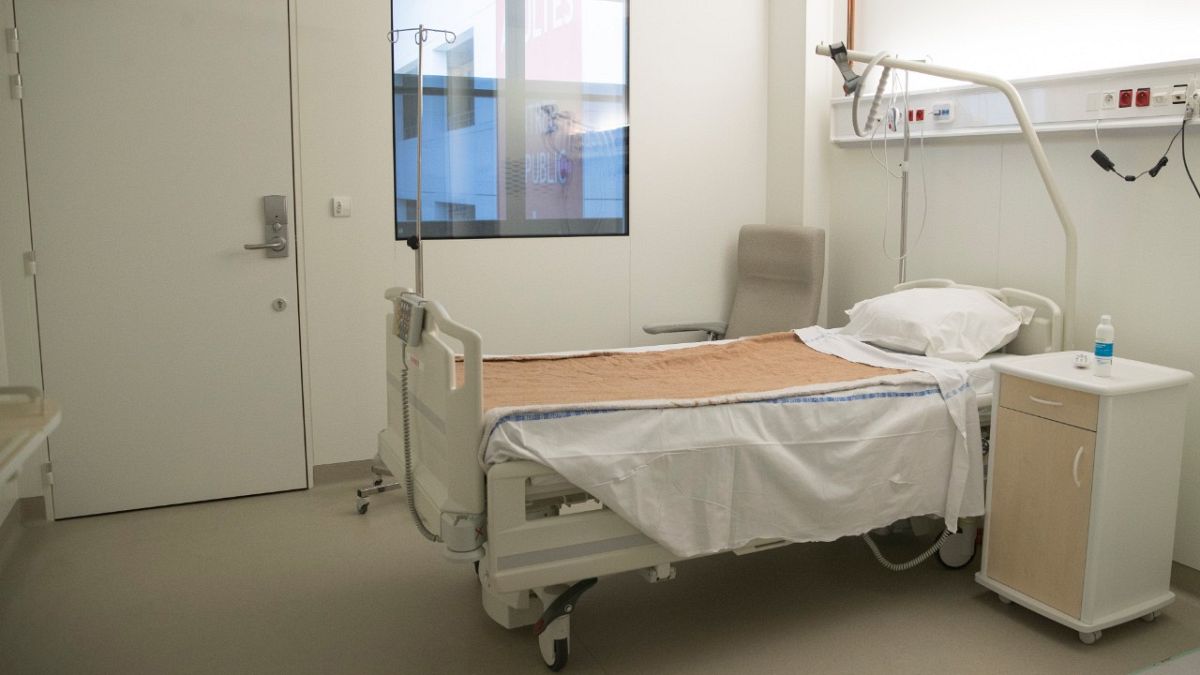Teenager Julie A. became France's youngest patient to die after contracting COVID-19.
On Wednesday night a teenager died of COVID-19 at a Paris children's hospital.
She was 16 and her name was Julie.
This makes her France's youngest patient to die of a virus that usually affects vulnerable or elderly people.
"It's unbearable," lamented Sabine, the young girl's mother. "It was just a cough."
A simple and seemingly mild cough came on just a week ago. She first tried healing it with cough syrup and inhalations.
On Saturday, Julie started feeling shortness of breath. "It wasn't that bad but she had trouble catching her breath," her mother recalled. But then the coughing fit became more frequent, which led her to drive her daughter to consult a doctor on Monday.
The general practitioner noted an "acceptable" respiratory deficiency. He decided to call the Emergency Medical Service (Samu), but firemen arrived instead.
Wearing gloves, masks and coveralls, they took the young woman to the closest hospital in Longjumeau, Essonne (18 km south of Paris). She had to wear a paper mask underneath her oxygen mask.
Sabine went home. When she called the hospital a little later, she was told about a CT scan, some pulmonary opacities, "nothing serious".
A COVID-19 test was underway.
But during the night, Julie, in respiratory insufficiency, was transferred to the Necker children's hospital in Paris. Two further COVID-19 tests were carried out.
'I feel a pain in my heart'
Julie was admitted to intensive care on Tuesday. She settled down in a small room with blue walls and teddy bear wallpaper. "At 16, it's still paediatrics," Sabine said.
When she came to visit her daughter in the afternoon, Julie was anxious. She could speak but quickly got tired: "I feel a pain in my heart," she said.
But the results of the last two COVID-19 tests brought some good news: they showed up negative.
"We started opening the bedroom door, the nurses no longer were wearing a gown, the doctor rose his thumb to tell me it's okay," Sabine said. Julie seemed to have avoided the worst.
It was late, Sabine came back to her home, promising that she would visit her the following day.
Late results
Later in the evening, she received a phone call: the result of the first test done at Longjumeau hospital had just arrived, Julie was positive for COVID-19 and her condition was deteriorating, she had to be intubated.
"We didn't believe it. We told ourselves they were wrong. And why did these results come so late?" Sabine still wondered.
"From the start, we were told that the virus does not affect young people. We believed it, like everyone else," said Julie's older sister, Manon.
Around 00:30, another call: "Come, quickly!".
"At that moment, I panicked. Some words make you understand," said Sabine.
According to General Director of Health, Professor Jérôme Salomon, who announced the passing of the girl Thursday evening, Julie contracted a severe form of the virus, "extremely rare" among young people.
'Everything must be burned'
"Her body already looked grey," Sabine said.
When she arrived at the hospital with her eldest daughter on Wednesday around 1:00 a.m., Julie was dead. She touched her hand, "her skin was still warm," she remembered.
Her sister stroked her forehead. And then immediately, they were told that they would not see her again, the protocol in times of epidemic being strict.
It was also impossible also to collect the girl's belongings, as everything has to be burned. However, the family still managed to keep a baptism bracelet.
Julie's body lies in the mortuary room of Necker hospital where it will remain until the burial, planned in a few days. As a precautionary measure, there will be no ceremony, and only ten people will be allowed to be present at the cemetery.
"We had to choose among our relatives who will be present," Manon said. "The day she died, we already had to choose a coffin for her."
This coffin will have to remain closed and Julie "will neither wear makeup nor be dressed. We are not allowed to," explained her sister.
"It's hard to accept," she said in unison with her mother.
According to the latest data, 1,696 deaths due to COVID-19 have been recorded in French hospitals since the beginning of the pandemic. Nearly 30,000 cases have been confirmed, with nearly 5,000 recoveries so far.
Since Thursday evening, the media have repeatedly reported out that a 16-year-old girl died from the coronavirus.
"It's horrible because I know it's mine," concluded Sabine.


